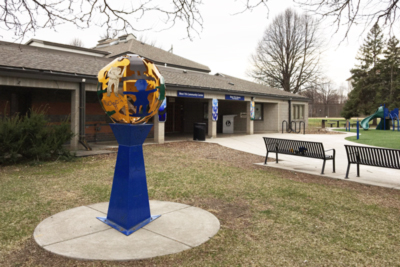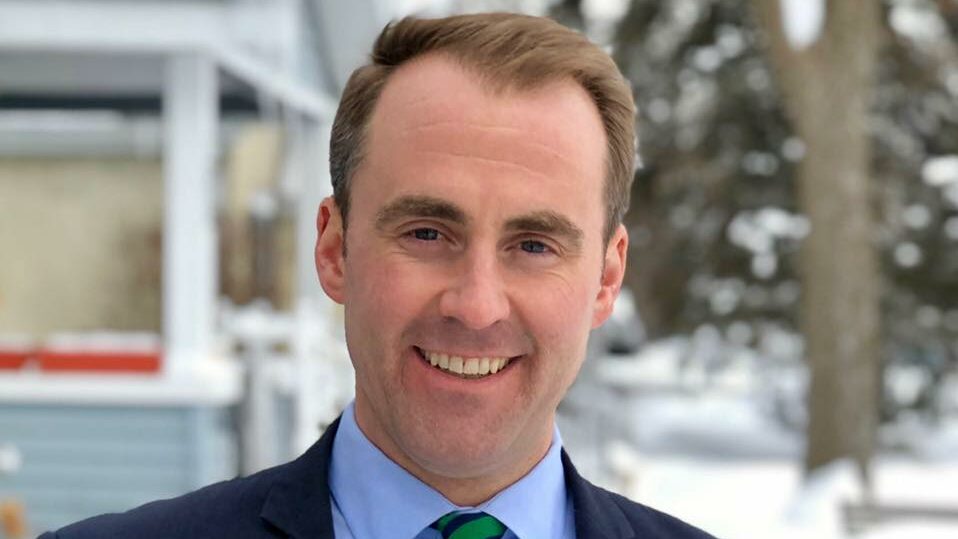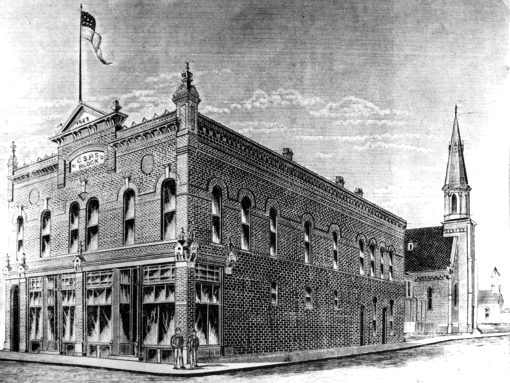“No confidence”: As UFM residents look to move program, patients flee a clinic adrift
by David Lamb
The marriage that created the United Family Medicine (UFM) Residency Program in 1993, providing high-quality health care to a generation of Saint Paulites — including downtrodden residents on Medicaid and the uninsured — has ended in a bitter, tight-lipped divorce. On one side is Allina Health, the employer of the UFM physicians who oversaw the clinic’s medical care and are now looking to establish a new outpatient clinic in the neighborhood. On the other is the UFM clinic, whose leadership has been blamed for forcing out the residency program. In the middle are the patients, struggling for answers and worried about how the changes will impact them and their community amidst the pandemic.
According to the 24 concerned neighbors or patients of the clinic who broke the story of its ongoing tumult in October’s Community Reporter, UFM’s new leaders are at fault. In their letter, the community members accused the clinic’s chief executive officer, Ann Nyakundi, appointed on an interim basis in October 2019, of barring UFM physicians from the clinic beginning in March as well as briefly shutting down their email accounts. They also claimed that during that time the clinic’s leaders took over facilities previously dedicated to the residency program, preventing it from returning.
The authors of the letter declared “no confidence” in the clinic’s leadership, demanding that Nyakundi step down and directing supporters to the Save United Family Medicine Facebook group to sign a petition.
Nyakundi suggested that recent changes to the clinic were done in order to resolve compliance issues flagged by the Health Resources and Services Administration (HRSA), a federal regulator, in a 2018 audit. A representative of the clinic cited “contracts with Allina for leased physicians, lab services, phone services, and electronic medical records services [that] prohibited us from complying with HRSA requirements.” A spokesperson for HRSA acknowledged that the agency “is aware of…[and] continues to closely monitor the situation” at the clinic.
UFM’s previous leader, Melissa Parker — who served as the clinic’s chief operating officer for more than a decade, then as CEO for more than a year — disputed Nyakundi’s account, telling the Community Reporter that “from [her] perspective all the conditions from HRSA had been cleared” when she left the clinic in October 2019. Allina Health’s representative would only say that it “has determined that it has become necessary to move the residency program and the faculty physicians to a new clinic location,” which she confirmed will be in the West 7th neighborhood.
Patient complaints about new clinic model
From March through July, while the community activists allege that UFM’s physicians’ access to the clinic was limited, a fact the clinic disputes, some patients struggled to get the care they needed.
Nearly a dozen current and former patients of the clinic interviewed by the Community Reporter pointed to problems accessing their physicians and a lack of communication from the clinic about why their doctors could not be reached. They described their physicians disappearing from the online booking system in the spring and not returning. Questions and messages patients sent about their health were answered by other healthcare providers.
The clinic’s representative wrote, “We do not expect an interruption in care to our patients during this transition.” She added that the new doctors they are in the process of hiring or have already hired “will integrate with United Family Medicine physician assistants and nurses to place the patient at the center of care.”
But that was not the experience of Kaye Peters, a UFM patient who has decided to leave the clinic and follow her physician. “In a time when everyone was so stressed out,” she said, “we couldn’t get to our doctors. I think that’s inexcusable.”
With none of the program’s 35 medical physicians working regular clinic hours through the spring and summer, according to several of the community activists, who had spoken with residents, physician assistants (PAs) carried the load.
Kerri Allen, a patient who has gone to the clinic for more than 20 years, confirmed that was what she observed. When she called in June to make an appointment, she insisted that she see her physician because of a preexisting heart condition that she said “could have killed” her if not for two of the doctor’s previous interventions. She was told that no physician would be available for her to visit, which struck her as a safety issue.
Bonnie Andor, another patient who has decided to leave the clinic to follow her resident physician — which will mean driving more than 30 miles to Cannon Falls, Minnesota — illustrated how the lack of physicians at the clinic affected her care. During an appointment in April, she was surprised to find that her doctor was not there to see her. Instead, she discussed a health problem she was having with the new provider, whom she would later discover was a PA. The PA prescribed her a drug, suggesting it would be a good solution in part because it was non-narcotic, though Andor pointed out that she didn’t care whether or not she took a narcotic so long as it solved the problem. Days later, the new drug made her ill. Andor discussed her situation with her pharmacist, who informed her that, unlike her physician, the PA she saw wasn’t licensed to prescribe the narcotics she needed.
One UFM patient, who spoke on the condition of anonymity since he is remaining a patient at the clinic until his doctor is available elsewhere, described his treatment over the summer as “appalling.” After the online system would not allow him to book an appointment, he called the clinic, and while they invited him to come in to renew prescriptions, they would not schedule a physical. “I’m in my 70s and I’ve got multiple medical problems, multiple medications,” he told the Community Reporter. “I haven’t gotten a physical in more than a year, and I need one.”
He has decided that he will eventually follow his doctor because of what he views as the importance of continuity in care, which he doesn’t expect to be a priority for the UFM clinic. “If you’ve got allergies and a number of medications like me,” he said, “it’s crucial to have a doctor who knows you, knows your history and can really talk to you.”
After Allen was told to report her safety concern about the lack of an available physician to the clinic’s chief operating officer, Sarah Torres, she left two voicemails weeks apart. She did not receive a response until she forwarded the concerns to Nyakundi, who answered that “generally, medication refills can be managed well by residents and advanced practitioners in most instances with consultation from physicians as clinically appropriate.” The reply did not allay Allen’s worries. Instead, in implying that she might not need to see a physician, the note bolstered them. “That message,” Allen said, “came dangerously close to someone with no clinical training offering medical advice.”
In October, many patients received their first communications from the clinic about its future, in the form of a letter from its new chief medical officer (CMO), David Bucher, speaking to “important changes designed to improve your health and experience.” The letter referenced new procedures allowing patients to book visits with “the team who knows them,” but it made no mention of the doctors who previously oversaw their care or any physicians at all, leading some to question whether they will have an individual who will provide them continuity of care or whether they will be able to get an examination by a licensed physician.
“If I have to see someone different, every damn time I go in there,” said a patient who wished to remain anonymous, “it will be impossible for me to get the care I need.”
Providers that partner with the clinic have weighed in with their own patient concerns. A spokesperson at Sholom, a multi-level care living community in St. Paul, described an exchange with the clinic’s leadership in June that she said “raised red flags.” After a United Family Medicine physician who made regular rounds checking on 14 geriatric patients at Sholom’s facility let its administrators know that she would be leaving her job, they asked Nyakundi for a replacement. They were told that the clinic’s contract to provide geriatric care at Sholom could be cancelled with 30 days’ notice, and that this response was that very notice. “They left those 14 patients high and dry,” Sholom’s spokesperson said.
The leader of the nearby St. Paul campus of the Hazelden Betty Ford treatment center, which has for years sent many of its patients to the clinic’s medication-assisted treatment programs, expressed displeasure about this year’s tumult and support for the clinic’s future. John Engebreth, its executive director of outpatient services in Minnesota, said that “while we’re concerned about losing a great referral source down the street for our patients who need ongoing medications, we thankfully have several more options than we [previously] did.”
Effects on the underprovided
Over the course of its 49-year history, the UFM clinic has strived to be accessible, employing a sliding scale since its founding and eventually becoming a Federally Qualified Health Center (FQHC) in 2012, which allowed it to serve more patients on Medicare and Medicaid. In 2019, 43 percent of those it treated were living below the federal poverty line.
The creation of the residency program more than 25 years ago gave patients specialized, comprehensive care, provided by preeminent doctors earning their clinic hours and the faculty physicians overseeing them. In practice, it meant that everyone from homeless people to lawyers working at Travelers sought out the clinic’s highly regarded programs. It became unique in the Twin Cities in its status as an FQHC with hospital service.
One patient, who asked to be anonymous, described the clinic’s mission to serve the underprovided as something that kept her coming back. “I was uninsurable in my 20s, with kids to feed, and all my savings went toward medical issues,” she said. “In 1996, someone told me that I might be able to afford this place. Now, I have great insurance, and one of the things I like most about going to the clinic is knowing that I’m supporting the care of someone who is in a position like I was.”
As she seeks to follow her doctor to Allina Health’s new program, she worries about how the recent changes will impact others. “I have insurance, so I’d find a place that would take me even if Allina weren’t opening another clinic. But what are the options for the really low-income people who rely on this clinic? Are they going to be able to get the same kind of treatment that I got when I needed it?”
Some patients fear that with this year’s departure of all but one of the physicians who had been overseeing care, the quality of care available to the needy will suffer. “The way [UFM] only used the word ‘provider’ in their letter [to patients] and not ‘doctor’ makes me suspicious,” Peters said, noting that the emerging clinic may have few physicians even when it has been fully staffed. “It almost seems like the clinic’s leaders saw COVID-19 as an opportunity to downsize it into a minute clinic. Like they’re deciding that poor people don’t deserve as much care as rich people do.”
Such downsizing may arrive in the form of cutbacks to its comprehensive programs in areas including geriatrics, maternity and addiction, which the community activists warned that ongoing changes threaten. An email circulated by Bucher, the clinic’s CMO, to staff members on October 21 seemed to confirm one of those suspicions. It announced that “[w]ith the ongoing transitions in clinic, we will not be accepting any new MAT patients at this time,” referring to the acronym for medication-assisted treatment, prescribed for substance-use disorders.
Jonathan Dickman, chair of the Community Reporter’s board of directors, is a faculty physician in the UFM residency program. He was not a source for any information provided in this story. UFM residents are also the rotating authors of the Community Reporter’s Healthline column.





Any patient wanting to file a complaint (which can remain anonymous), can find relevant information here: https://drive.google.com/file/d/1OGhRYASaAp2gAq1F8iJ8cm1EOorquDgF/view?usp=drivesdk
You can also sign our community petition: https://forms.gle/3NuCT7Biwx3xwvxt6
Find our Facebook page at https://www.facebook.com/SaveUnitedFamilyMedicine/